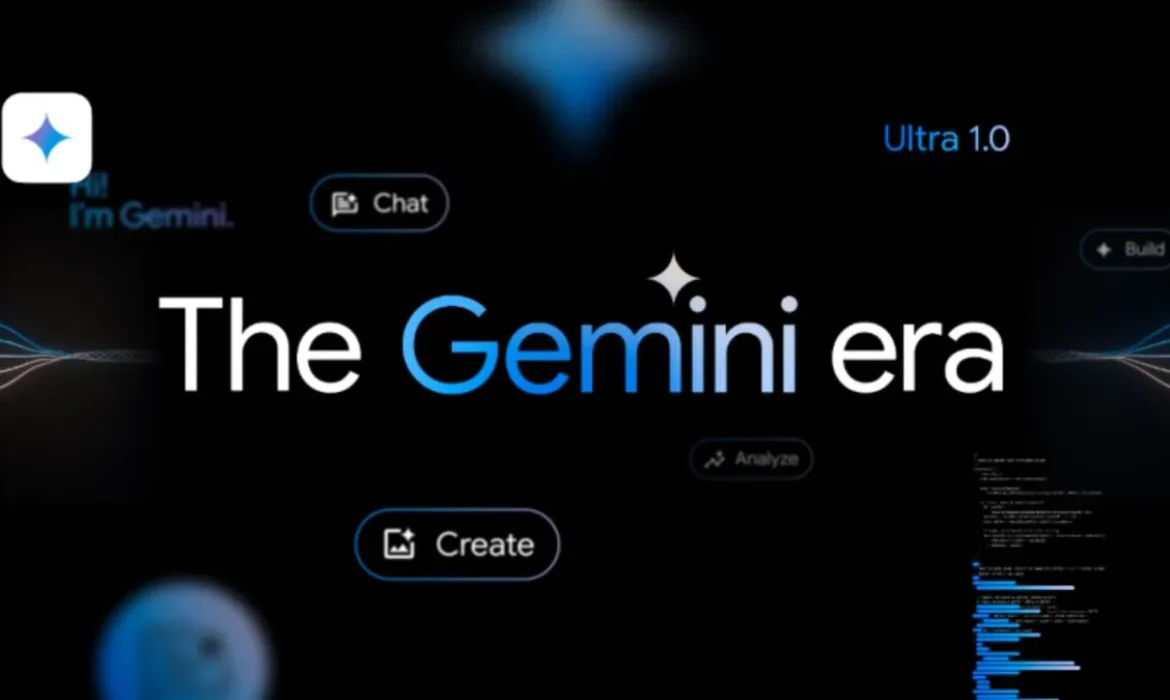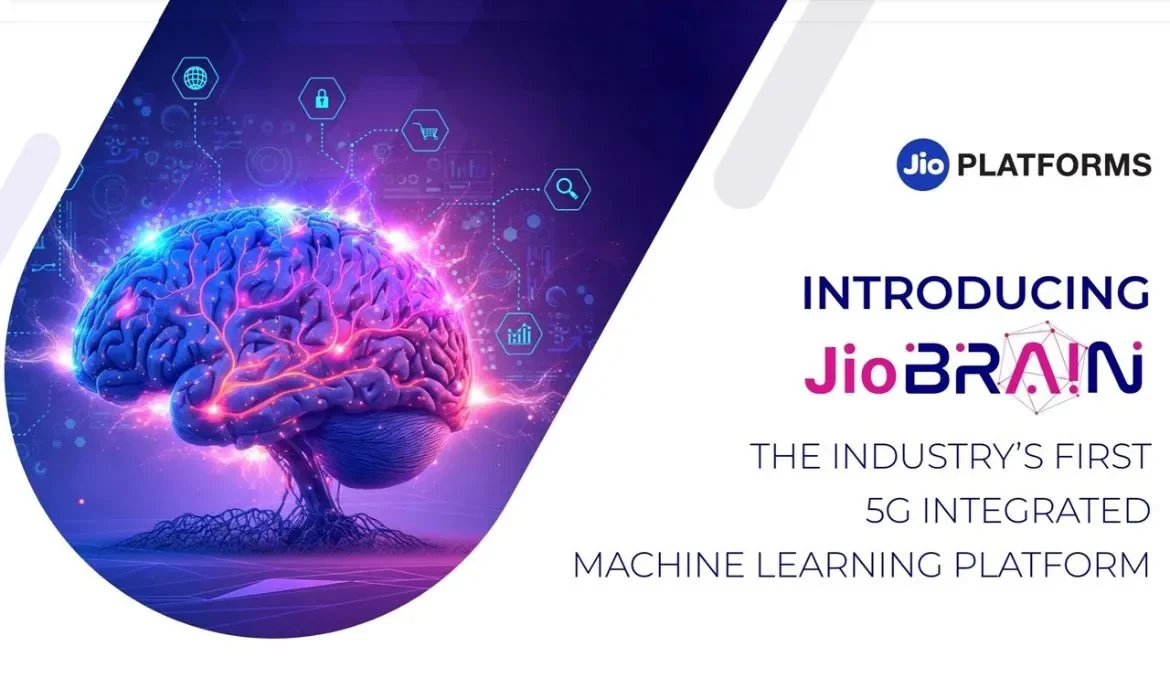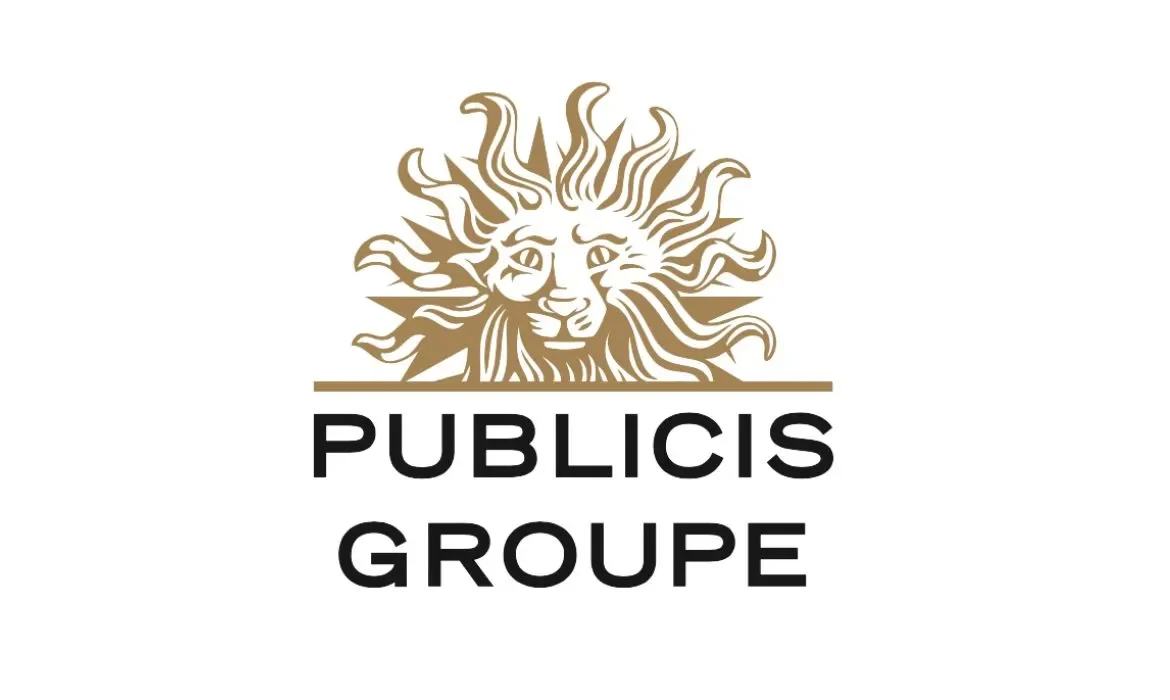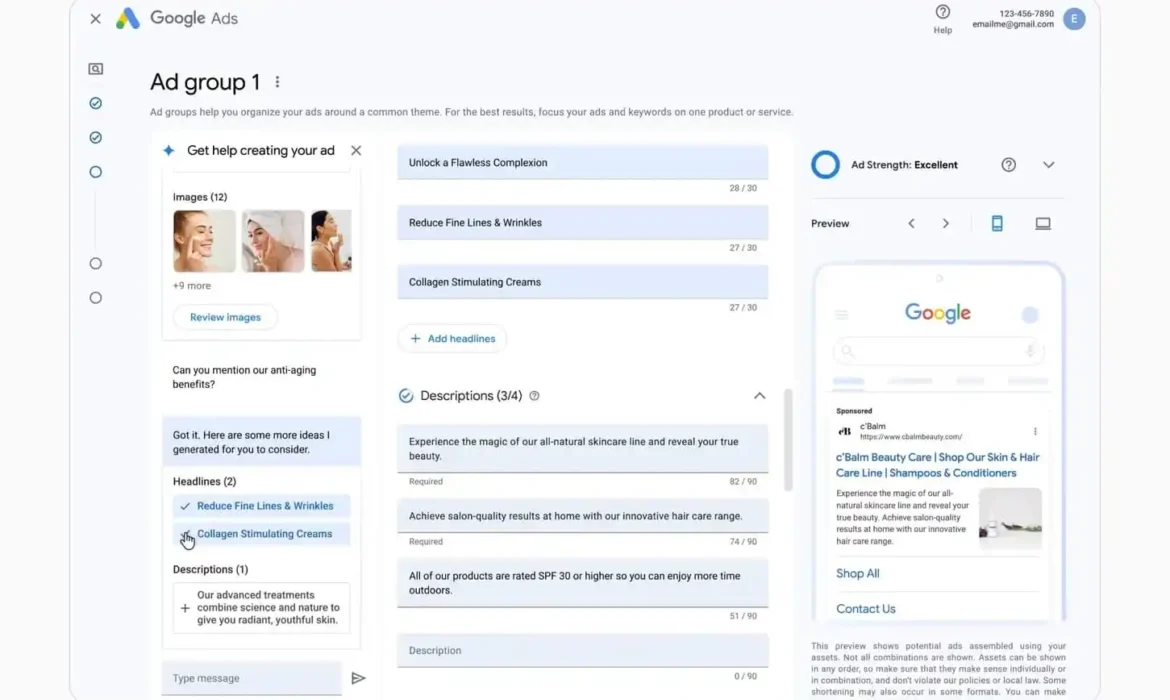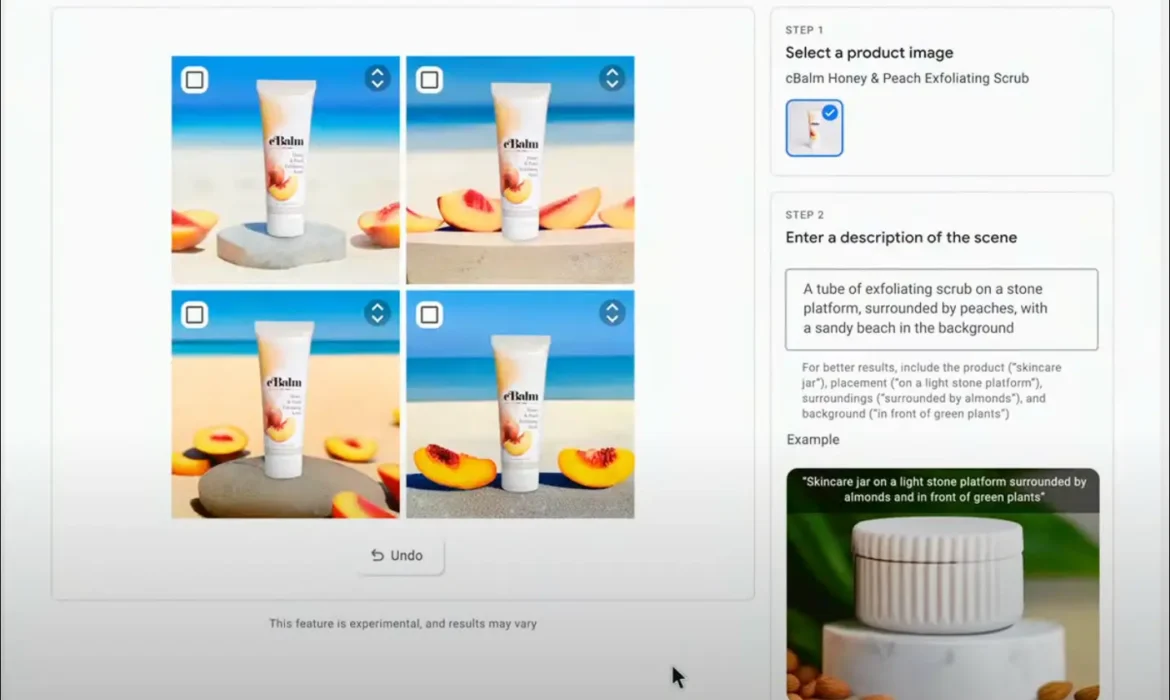Saudi Ministry of Culture Introduces World’s First VR History Tours in Metaverse
Saudi Arabia has made a major advancement in the expression and engagement of culture. It has introduced a wide range of immersive metaverse experiences and heritage attractions. The world’s first National Cultural Metaverse platform, which offers virtual reality (VR) history tours and other experiences, has been launched, according to the Saudi Ministry of Culture. The introduction of immersive virtual reality tours of its historical sites within the metaverse is a step forward in terms of accessibility and cultural preservation. The artificial intelligence system for Generative Media Intelligence (GMI) technology, which promises to transform cultural engagement on a global scale, supports national initiatives in the realm of the metaverse.
The World’s First VR History Tours
The Saudi Heritage Metaverse Platform, which is represented by droppGroup and its World’s First “Phygital” Metaverse droppPhygital, are partnering to launch the initiative utilizing Hyperledger Fabric 2.5 blockchain technology. The innovative platform offers users a dynamic realm where they can immerse themselves in a plethora of activities and attractions, mirroring real-life celebrations, such as the Kingdom’s Founding Day festivities, by seamlessly fusing cultural richness with digital innovation. The platform offers a wide range of activities to suit a variety of interests, including engaging History Marches and sections honoring music, art, history, culinary arts, and crafts.
VR tours powered by Generative Media Intelligence (GMI) technology
As part of the celebration of the Kingdom’s Founding Day, which was observed on February 22, the platform hosts a dynamic digital environment. It allows users to experience numerous activities and attractions “in real life.” It offers a variety of cultural shows, performances, and digital innovations powered by GMI technology. Additionally, users can anticipate having a virtual front-row seat to events that are streamed. These include the Saudi Founding Day Symphony Concert and cultural attractions like the History Walk. Additionally, mini-video games are available on the platform. It is available to users in the UK and around the world, for extra entertainment.
Read More: MGID Introduces New AI-Powered Dashboard for Campaign Setup
Fully immersive web-based experience
The Metaverse platform by the Ministry of Culture is a fully immersive, web-based experience that is compatible with Mobile XR. It guarantees accessibility on a variety of devices, including desktop computers, VR headsets, mobile phones, and other digital devices. To represent the Ministry of Culture’s dedication to inclusivity, users are ensured a smooth transition into the Metaverse. Moreover, it allows a wide range of international viewers to delve into and engage with the rich legacy of Saudi culture.
The National Culture Metaverse Platform’s launch is a significant turning point. It will provide users with virtual reality history tours and a variety of other immersive experiences. Through their exploration and engagement in metaverse events, users usher in a new era of cultural expression and participation. This project demonstrates the vitality of Saudi culture and establishes a standard for future cross-cultural exchange worldwide.
Importance Enhancement for cultural expansion
This project marks a significant advancement in the future of cultural expression and participation. It allows millions of people from the Kingdom and around the globe to experience Saudi events in the Metaverse. This marks a turning point in cultural participation. Saudi Arabia hopes to ensure that its legacy endures even as physical structures deteriorate or change over time. It preserves these sites’ histories and significance for future generations through virtual reality capture.
Read More: Saudi Arabia Capital Riyadh Set to Host World Expo 2030 Fair
MGID Introduces New AI-Powered Dashboard for Campaign Setup
MGID, the global advertising platform, has introduced a new dashboard for MGID Ads, its self-service campaign planning and execution suite. The new platform doubles the speed of campaign setup by showcasing a plethora of AI-powered features through an intuitive interface that is more powerful than before.
Using AI to Revolutionize Advertising
With the help of informative tooltips, users will be guided through MGID Ads’ entire campaign creation process, from creative development to ad placement. The platform leverages extensive data analytics, a CPC calculation feature, a step-by-step tracking setup, and AI-generated creatives to maximize performance.
The new dashboard objectives
The goal of MGID’s new dashboard is to redefine the advertiser journey rather than just integrate AI. The update lets advertisers launch up to 100 creatives at once. It can increase the number of campaign metrics from 9 to 27. This increase in functionality is paired with an easy-to-use interface that provides tooltips and instant error alerts with resolution descriptions. It will help users navigate the campaign creation process. These features demonstrate MGID’s dedication to raising the standard of advertising while also making it easier for marketers to carry out their campaigns.
Read More: Innocean India Launches Its Artificial Intelligence (AI) Lab, Innolabs
The introduction of MGID’s new dashboard is a significant development for the advertising sector. MGID Ads is poised to transform marketing strategies through the integration of cutting-edge AI technologies. It will provide previously unheard-of levels of campaign optimization, content personalization, and customer engagement.
Here’s what they said
Matthew Villa, Head of Sales US at MGID said,
“Advertisers always have more to do than there are people to do it, so we’ve overhauled MGID Ads to make it as easy as possible to work efficiently with native ads. By weaving AI into the very fabric of our new dashboard, advertisers can leave the heavy lifting to technology while focusing on driving audience attention, maximizing performance, and delivering measurable results.”
Read More: JCDecaux Announces the Launch of Global Airport Programmatic DOOH
Innocean India Launches Its Artificial Intelligence (AI) Lab, Innolabs
Innocean India, a leading name in the advertising industry, announced the launch of its cutting-edge Artificial Intelligence (AI) labs, Innolabs. With its cutting-edge solutions that leverage the power of artificial intelligence and modern technology, this exciting project is poised to completely transform the advertising industry.
Innocean India has made history by revealing its first significant project from Innolabs: a text-to-image AI model. This model is intended to produce final images that feature the new Hyundai CRETA in fantastical settings created especially for their prestigious client, Hyundai Motor India Limited (HMIL).
Innolabs – a state-of-the-art AI hub
Innolabs, a creative and technological hub, is committed to discovering artificial intelligence’s vast potential in the advertising industry. The lab is dedicated to pushing the envelope of creativity, improving user experience, and providing clients with state-of-the-art solutions.
Innocean’s AI-powered project for HMIL
Innolabs’ flagship project represents a major turning point in the agency’s efforts to redefine the field of digital advertising. With its seamless integration of technology and design, the AI-powered wallpaper website for HMIL provides users with an engaging and interactive experience. The website presents the recently released Hyundai CRETA in an artificial intelligence setting that is generated by user input. Customers can spread the campaign’s reach and promote Hyundai’s brand message by simply downloading and sharing their favorite wallpapers on social media.
This strategic move reflects Innocean India’s commitment to leading the industry and providing clients with unrivaled value. The agency is excited to share more innovative projects from Innolabs soon, in addition to other projects like ImpactHub and InnoData.
Read More: IAS Announces AI-Powered Brand Safety and Suitability Expansion to Meta
Here’s what they said
Mr. Santosh Kumar, COO at Innocean India, expressed enthusiasm about the launch of Innolabs and its inaugural project, stating,
“Innolabs is a testament to our commitment to AI & tech led innovation and excellence in advertising and the first step towards the vision of Innocean 2.0. The AI wallpaper website for Hyundai is just the beginning of what we envision for the future of advertising. By seamlessly blending creativity with technology, we aim to elevate brand experiences and leave a lasting impression on our customers.”
Mr. Jaden, MD & CEO of Innocean India, added,
“I am excited to announce our advertising agency’s unwavering commitment to pioneering technological advancement and adopting an AI-first approach. With innovation at our core, we’re poised to redefine industry standards and deliver unparalleled results for our clients in India and globe.”
Mr. Virat Khullar, Head of Marketing HMIL, also congratulated Innocean on the launch of Innolabs commenting,
“It’s inspiring to see Innocean India’s dedication to innovation with Innocean 2.0. The ultimatecreta.ai website for HMIL shows their commitment to blending creativity with technology, setting a new standard for brand experiences. Their vision for the future of advertising is bold and exciting, and I’m sure it will impress our customers too. I applaud their initiative and look forward to more advanced AI-led marketing projects from Innocean soon.”
Read More: Google is Rebranding Its AI Chatbot Bard to Gemini Ultra 1.0
Google is Rebranding Its AI Chatbot Bard to Gemini Ultra 1.0
Google Bard was so 2023. Google is renaming its AI platform Bard, which it first unveiled a year ago to compete with OpenAI’s ChatGPT, Gemini, the name of its family of large language models (LLMs). The rebranding is a result of Google’s chatbot, Bard, adopting the new “Gemini” model in December. Following an earlier leak that hinted at the name change, the tech giant confirmed that it is ditching the old name in favor of a new one.
Google rebrands AI chatbot Bard to Gemini and more
Google has launched a free artificial intelligence app that will allow people to write, interpret what they’re reading, and handle a variety of other tasks in their lives. Additionally, Google revealed new ways for users to access the AI tool: iPhone users can use Gemini within the Google app on iOS, and Android users can download a new, dedicated Gemini app.

Image credit- PCMag
The company’s commitment to pursuing and making significant investments in AI assistants, or agents—a term that is frequently used to describe tools ranging from chatbots to coding assistants and other productivity tools—is highlighted by Google’s rebranding and app offerings. With the Gemini name change, Google has finally established itself in the AI competition. The business will undoubtedly continue to develop new AI models and tools in addition to testing out experimental AI features. But Google now possesses the three essential elements for success in the AI space: a premium subscription service, a mobile app, and a strong brand.
Read More: Publicis Groupe Plans €300 million AI Investment, Unveils CoreAI Platform
Soon be available on iOS and android
The free AI chatbot is available at gemini.google.com. Users will be redirected to the new domain when they visit the old Bard website. The company also released the Gemini Android mobile app at the same time as the rebranding. In the upcoming weeks, the chatbot will be available to iPhone users on the official Google app for iOS.
Though Google’s voice assistant will continue to exist, business executives predict that Gemini will overtake other applications as the primary means by which users utilize technology to assist with planning, creating, and thinking. It represents Google’s next step into a riskier and newer direction while keeping its original mission of “organizing the world’s information and making it universally accessible and useful” front and center.

Video credit- Android Central
Gemini Advanced vs ChatGPT Plus
The arrival of Google’s response to ChatGPT Plus is the other significant announcement. The company has formally introduced Gemini Advanced, which runs Gemini Ultra, its most powerful AI model, along with the rebrand. The Gemini Advanced option aims to expand on the nearly 100 million global users that Google claims it has already drawn. The majority of these users pay $2 to $10 a month for extra storage to back up documents, images, and other digital content. The Gemini Advanced option will be powered by AI technology called “Ultra 1.0.” Google currently charges $10 per month for 2TB of storage, so the company feels the AI technology is worth an extra $10 per month for the Gemini Advanced subscription.

Image credit- Android Central
Subscription model for the AI chatbot
The tech giant is charging $19.99 a month for a subscription, which is similar to ChatGPT’s $20 monthly cost for ChatGPT Plus, the advanced model. At launch, Gemini Advanced will be available in more than 150 nations and territories, but only in English. Future expansion of language options is planned, including Korean and Japanese. According to rumors, it is intelligent enough to work as a personal tutor for a variety of subjects and excels at computer coding, logical reasoning, and creative projects.
Google CEO Sundar Pichai highlighted the capabilities of Gemini Advanced, claiming it can outperform human experts in massive multitask language understanding or MMLU. This involves evaluating knowledge and problem-solving skills in 57 different subjects, including math, physics, history, law, medicine, and ethics. After the two-month free trial period, users will be charged $20 per month for Google Gemini Advanced. The primary Gemini website is another place to find upgrade offers.
Read More: Jio Platforms Launches Jio Brain, an AI and ML Platform for Enterprises
Bringing Gemini’s capabilities to more products
Additionally, Gemini models will be available for everyday consumer and business products like Google Cloud and Workspace.
Workspace
With Duet AI, over a million users have already benefited from features like “Help me write.” It increases productivity and creativity. Soon, users with the Google One AI Premium plan will be able to use Duet AI as Gemini for Workspace and Gmail, Docs, Sheets, Slides, and Meet.
Google Cloud
In the upcoming weeks, Duet AI will also become Gemini for cloud customers. Along with a host of other advantages, Gemini will help businesses increase productivity. Furthermore, it will also help developers write code more quickly, and organizations defend themselves against cyberattacks.

Image credit- PCMag
Moving into the AI realm
The release of the Gemini app highlights the need to add more artificial intelligence to smartphones. These are devices that people carry with them everywhere. This is in line with a trend that Samsung and Google started last month with their most recent Galaxy smartphones. Moreover, Google started last fall with the release of their most recent Pixel smartphones.
AI behavior concerns
Concerns that AI will behave badly on its own or be manipulated by humans for evil intent. It can include spreading false information in politics or torturing their enemies, which are growing as technology becomes more complex. Because of this potential, Europe has already passed laws governing the use of AI. Furthermore, the United States and other nations have followed suit.
In the future, AI agents might arrange a get-together by looking through everyone’s calendars. By doing so, they can make sure there are no conflicts, and plan trips and events. Furthermore, they can also purchase gifts for family members, or carry out a particular task like outbound sales. However, at the moment, Gemini’s capabilities are mainly restricted to activities like creating to-do lists, summarizing, and assisting with coding.
Here’s what they said
Sundar Pichai, CEO of Google said in the blog post,
Bard has been the best way for people to directly experience our most capable models. To reflect the advanced technology at its core, Bard will now simply be called Gemini. It’s available in 40 languages on the web and will soon be accessible through a new Gemini app on Android and the Google app on iOS.
Read More: IAS Announces AI-Powered Brand Safety and Suitability Expansion to Meta
Jio Platforms Launches Jio Brain, an AI and ML Platform for Enterprises
Leading telecom and tech company Jio Platforms recently unveiled Jio Brain. It is an artificial intelligence (AI) and machine learning (ML) platform for businesses. Jio Brain seeks to simplify the deployment of ML tools across telecom networks, enterprise environments, and industry-specific IT setups in everyday operations. It seeks to emphasize integrating 5G capabilities. Jio Brain’s enterprise-ready and mobile-ready large-language model (LLM) as a service feature. This enables its clients to take advantage of generative AI features, which is one of its main selling points. With over 500 data APIs and Representational State Transfer (REST) APIs, the cloud-native platform enables businesses to develop ML services tailored to their specific requirements.
Industry’s first 5G integrated ML platform
Aayush Bhatnagar, Senior Vice President of Jio, made the announcement. According to him, hundreds of engineers worked on the project for two years before Jio Brain was developed. The platform was described as “Industry’s first 5G integrated ML platform” in a document that was included with the announcement.
According to Bhatnagar, the platform was created following two years of research and development work by hundreds of engineers. He highlighted Jio Brain’s transformative potential. He said it will help develop new 5G services, transform businesses, and optimize networks. Furthermore, it will pave the way for the development of 6G, where machine learning will play a major role. With this unveiling, Jio is demonstrating its dedication to driving the enterprise application of AI and ML.
Read More: Nazara Tech’s Nodwin Gaming Acquires Comic Con India for Rs 55 Cr
Jio Brain
The platform is essentially an AI and ML-powered system. It provides enterprises with automation and possibly even generative AI features. It helps them run their operations more quickly and effectively. The service describes itself as “industry agnostic” and states that it provides many features. LLM as a Service, sophisticated AI features for text, images, videos, documents, and voice, a cloud-native solution with plug-and-play architecture, data integration capabilities, numerous AI/ML embedded mobile and web applications, and more are just a few of Jio Brain’s noteworthy products.
Jio Brain’s AI and ML services
Businesses can use Jio Brain to handle tasks related to natural language processing (NLP) and artificial intelligence (AI). These includes text-to-music, text-to-image and video, speech-to-speech, speech-to-text, and image-to-video generation. Jio Brain exhibits adaptability to managing a diverse range of applications. Its extensive feature set makes it an effective tool for businesses. It tries to improve productivity and creativity throughout its whole operation. The platform makes code generation, debugging, explanation, and optimization easier. Jio Brain also includes essential machine learning features like feature engineering, ML chaining, hyperparameter tuning, and more that can be used as a stand-alone service or in combination.
Crucially, Jio Platforms stated that it would be willing to work with researchers in AI and ML to make improvements. Jio’s dedication to collaborative innovation demonstrates its understanding of the dynamic nature of AI. Moreover, it also showcases the need to constantly push boundaries. Jio Brain seeks to remain at the forefront of technological developments in the AI and ML space by establishing partnerships with researchers. Although the announcement offers an overview of Jio Brain’s capabilities, the company has not provided a launch date for the platform. This gives the tech community cause for excitement and conjecture as businesses and industry insiders alike eagerly anticipate Jio Brain’s official launch and the revolutionary effects it may have on the market for business AI and ML solutions.
Read More: Publicis Groupe Plans €300 million AI Investment, Unveils CoreAI Platform
Reliance’s Recent Move Toward AI
Reliance recently revealed a collaboration to develop a sizable language model suited to India’s multifaceted linguistic environment. This initiative, in partnership with NVIDIA, aims to advance AI technologies for a range of applications, including drug discovery, chatbots, and climate research. In this project, NVIDIA will provide AI supercomputer technologies to Reliance Jio, the Reliance Group’s telecom subsidiary. These include networking solutions, graphics processing units (GPUs), CPUs, AI operating systems, and frameworks that are necessary for creating sophisticated AI models.
Reliance’s Latest Endeavors
Jio’s chair, Akash Ambani, recently revealed that the company is collaborating with IIT Bombay on the BharatGPT project. This comes also after it was revealed that Reliance and NVIDIA are collaborating to use GH200 GPUs in India to create AI models. Jio is developing its operating system (OS), especially for televisions in addition to these initiatives. By improving user interaction and engagement on Jio devices, this operating system seeks to bolster the company’s services throughout its ecosystem.
In conclusion, the introduction of Jio Brain by Jio Platform marks a major advancement in the application of ML and AI technologies in business settings. Jio Brain can completely change how businesses approach efficiency, innovation, and automation. This is because of its emphasis on 5G integration, customization, and cooperation with researchers. The excitement surrounding Jio Brain is growing as the tech community waits for more information and a confirmed launch date. This is a significant development in the changing landscape of AI and ML platforms for businesses.
Read More: Babita Baruah Joins VML India as CEO as Shams Jasani Steps Down
Publicis Groupe Plans €300 million AI Investment, Unveils CoreAI Platform
Publicis Groupe intends to prioritize a new AI platform and devote an additional €300 million to AI initiatives over the following three years. As the new technology is used more and more in the advertising industry, this will include €100 million in 2024 as part of its new plan to become “the industry’s first AI-powered intelligence system”. Publicis unveiled CoreAI, a new “intelligent system” that will enable new AI capabilities for the Parisian behemoth throughout the whole organization, as part of a significant AI overhaul.
Fund distribution in the AI investment
The funds will be distributed equally. Half of the €100 million that is budgeted for 2024 will go toward personnel, such as hiring and training, and the other half will go toward technology, such as cloud infrastructure, software, and licenses. At a time when ad companies are moving away from a cookie-based online model to proprietary first-party data, Publicis announced that it would leverage the 2.3 billion individual data profiles it possesses to train its “CoreAI” tech platform, personalize campaigns, predict their impact, and adjust targeted audiences in real-time.
The company announced that it would invest €100 million in 2024 alone, with all funding coming from “internal efficiencies” and no impact on operating margin dilution. Additionally, Publicis stated that it intends to further incorporate AI into its current platform model by linking each employee to “CoreAI,” an entity that the group began developing in the second half of 2023 and will begin implementing in the first half of 2024.
What is CoreAI?
The new multi-layered platform known as CoreAI is the hub for AI initiatives. CoreAI combines multiple AI agents, an API layer, and foundation AI models from Publicis Groupe. It also includes Publicis Sapient’s Bodhi machine learning platform, using both structured and unstructured data. In addition, OpenAI, Adobe, Amazon, Microsoft, and twelve other third-party AI service providers are partners of CoreAI. Some other third-party suppliers are Bria, Hugging Face, RunwayML, Midjourney, and Pika.AI.
Read More: Publicis Group ME Names Joyce Hallak as CSO for Publicis Media ME
How will the AI platform benefit?
The company will be able to connect every data point, from across every expertise, business unit, and geography. Furthermore, it will put them in the hands of all of its people. This is all thanks to the transition to an intelligent system. The central component of the system will be an entity named CoreAI by Publicis Groupe. It was created with the assistance and AI expertise of Publicis Sapient.
CoreAI data points deployment
All 1,00,000 employees will have access to CoreAI’s data points, which can be used in five primary disciplines:
- Insight: offering analysis, research, and “business consultant-level intelligence” to support the development of marketing plans and strategies.
- Media: Maximizing purchasing and planning to get better outcomes and accuracy.
- Production and creativity: allowing divisions to produce customized content on a large scale.
- Software: This enables the company to launch digital goods and software in “days and weeks, not months.”
- Operations: Client management and operations systems have been “boosted with speed, accuracy, and efficiency.”
Here’s what they said
Arthur Sadoun, CEO & Chairman of Publicis Groupe said,
Our journey from a holding company to a platform has not been easy, but it definitely paid off, as you can see with our 2023 organic growth outperforming the industry for the fourth year in a row. The platform organization we have built over the last decade, our proprietary data of unmatched breadth and accuracy, and the 45,000 engineers, consultants and data analysts at the heart of our model, uniquely position us to push the boundaries even further by leveraging AI.
Read More: Publicis Worldwide India Wins Creative Mandate for Pramerica Life Insurance
The Future of Creative Branding in the era of CGI and Artificial Intelligence
The Context
In the digital revolution era, the future of creative branding holds immense potential for success.
Brands today face a substantial demand for creative content. It’s no longer sufficient to promote a service merely; brands must weave a narrative to forge connections with their customers. They must share values and philosophies beyond their products, finding an audience that resonates with them.
The Communication Tools
In my view, nowadays the most invaluable tools for conveying a product brand include computer-generated imagery (CGI), still photography, and video production. While I anticipate that augmented reality (AR) experiences may replace many of these tools in the future, CGI and artificial intelligence (AI) will remain pivotal.
CGI serves as a tool to pre-visualize and enhance the visualization of products, allowing them to exist in extraordinary worlds and showcase features and benefits that would be challenging to communicate otherwise.
CGI will eventually replace product photography, leading to a surge in demand for video productions by brands. With tools like Unreal Engine, CGI will be indispensable for real-time product displays and architectural visualization scouting, real-time and post-produced hybrid virtual productions.
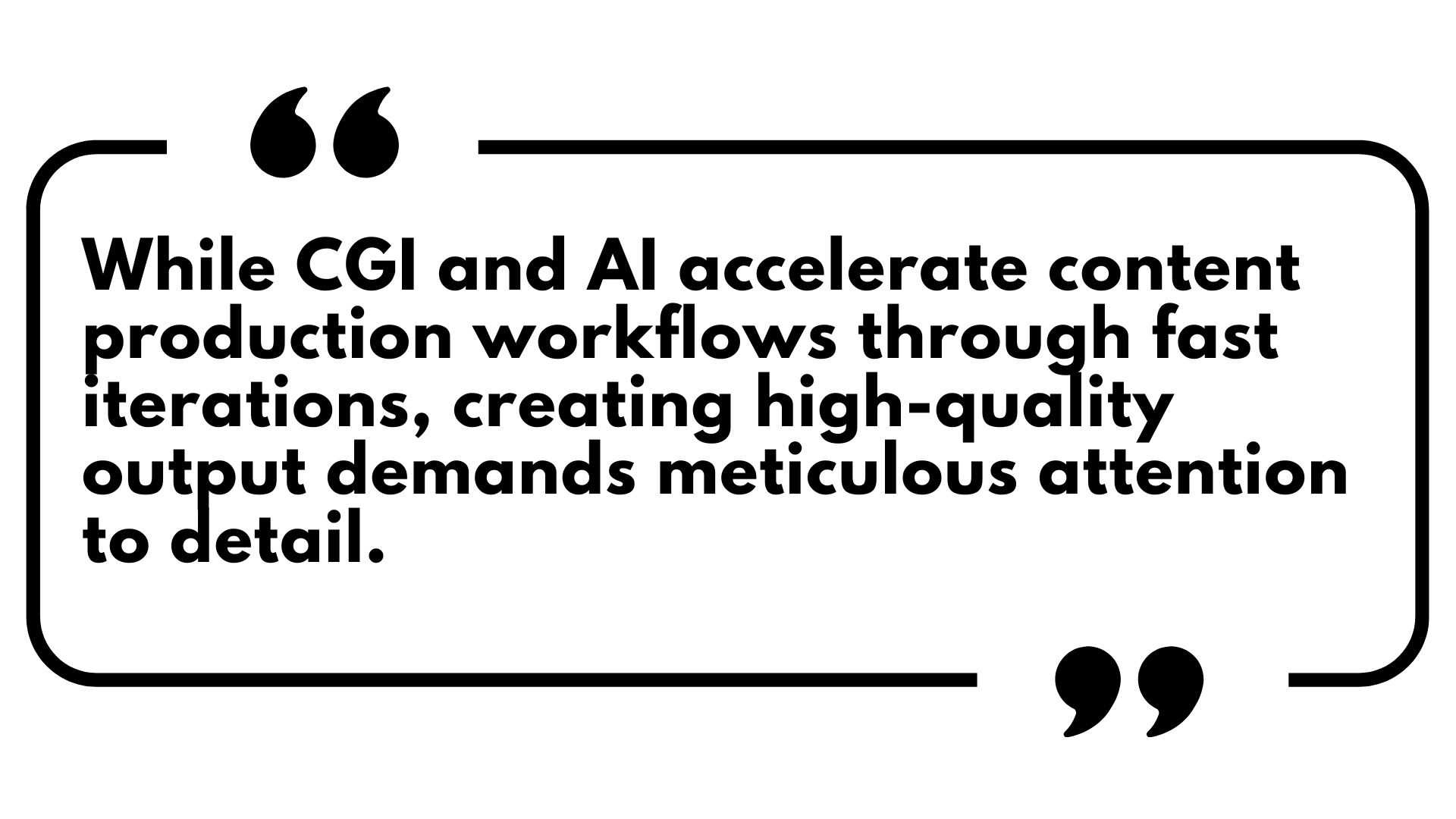
Alongside these advancements, AI is rapidly finding a place in the creative branding landscape. Currently functioning as a complementary tool to CGI, AI’s swift evolution demands our attention. It’s primarily used to generate creative visual solutions and aids in the previsualization of video content. As AI evolves, it will become an indispensable tool for both creatives and brands, offering solutions such as crafting captivating scripts and generating voiceovers in multiple languages.
Quality over Quantity
Despite envisioning a bright future for creative branding with CGI and AI, I caution against the easy mistake of prioritizing “quantity over quality.”
AI, in particular, tends to generate numerous outputs from a single input. While this can be inspirational, mismanaging AI may lead to inconsistent outputs, creating distractions for customers and failing to add value to the brands and products being promoted.
While CGI and AI accelerate content production workflows through fast iterations, creating high-quality output demands meticulous attention to detail.
Crafting a product aligned with brand values, effectively communicating to the right audience, and serving as a potentially viral communication tool takes time and iterations.
Focusing on these aspects necessitates open dialogue and collaboration among creative minds.
Final thoughts
The potential and possibilities in CGI and AI for creative branding are vast. However, it’s crucial to be mindful, especially with AI, which can generate outputs lacking strategy and consistency.
Failing to manage AI properly may dilute the focal points and values crucial for establishing deeper relationships with modern customers.
Maintaining top-quality outputs is more than ever fundamental for elevating the brand and working effectively.
This article is written by Gabriele Ricci, Creative Motion Director

Gabriele Ricci
Creative Motion Designer | CG Director | Professional Partner in Motion Design and Creative Branding
Gabriele Ricci is an award-winning Creative Motion Designer and CG Director who collaborates with global companies, international agencies, and brands.
His distinctive superpower is a blend of creative strategy, art direction, and technical expertise. This enables him to serve as a professional partner, leading motion design projects from initial concept to final delivery.
With his personal brand RICCI- Design in Motion®, he created premium video content such as digital marketing campaigns for Emporio Armani, the 3D video promo for the celebrity book of Arnold Schwarzenegger by Taschen, or top-quality digital marketing video for brands such as Ray-Ban and Oakley.
Google Integrates Gemini AI Into Search Ads Platform
As the consumer search experience changes, generative AI can help advertisers by improving ad effectiveness and expediting the creation of campaigns. Google has incorporated its latest AI model – Gemini – into the Search Ads platform to enhance advertising efficiency. Early Ad Strength scores, which gauge the relevance, caliber, and diversity of ad copy, have increased as a result of advertisers creating more effective search campaigns with less work. The goal of the integration is to facilitate the creation of ad campaigns and improve the way that advertisements relate to online searches as they change.
Enhancing search engine marketing with Gemini-powered chat in search ads
In the upcoming months, Google Ads will join the list of core products that will support Gemini, the company’s largest and most powerful AI model. To improve its advertising solutions, the tech giant is now testing Gemini. The conversational experience is presently powered by Gemini. English-language advertisers in the United States and the United Kingdom can now fully access the conversational experience in Google AdWords through beta access. Over the coming weeks, it will be made available to all English-language advertisers worldwide. In the coming months, Google will be adding more languages.
Through a chat-based interface, the conversational experience workflow is intended to assist in the development of search campaigns. It blends knowledge with Google AI. With its Gemini AI model, the company has introduced a conversational experience in Google Ads that runs on servers in data centers as well as mobile devices. Advertisers can create relevant ad content with a conversational experience. Advertisers have expressed that it can be difficult to produce captivating images that boost performance as search becomes more visual.
Read More: Google’s Third-Party Cookies Deprecation Rolls Out Today
What are the advantages for advertisers?
More advertisers now have access to a feature that may speed up and simplify the process of creating search campaigns, giving them more time to concentrate on other critical activities necessary to achieve favorable campaign results. A new chat-based feature in Google Ads is called the Conversational Experience. Generating text and assets more quickly, it facilitates optimization and speeds up the creation of search campaigns by combining knowledge with Google AI.
How does it operate?
Conversational experience can be helpful.
- Developing fresh search ad headlines and descriptions
- Coming up with pertinent keywords
- Proposed pictures
- Proposed links to websites
Advertisers only need to enter their websites to create these assets; Google AI will then create relevant ad content, including headlines, descriptions, images, and keywords. The selection of elements for their campaigns is entirely up to advertisers. They can also use the chat feature to tweak and modify the content that has been generated. All generative AI-created photos in Google Ads, including conversational images, will have an invisible SynthID watermark and open standard metadata.
Generative AI in search ads
Using generative AI and images from landing pages, Google has designed the conversational experience to suggest images specific to a campaign. This allows advertisers to approve all campaign assets—including images—before the campaign’s launch. Ads for small businesses that use Google AdWords’ conversational experience have a 42% higher chance of publishing search campaigns with “Good” or “Excellent” Ad Strength. Overall, advertisers ranging from “Poor” to “Excellent” see an average 12% increase in conversions.
Generative AI is expected to improve 84% of Google Search queries. It will result in an annual impact on ad revenue of over $40 billion. According to estimates, the industries most affected by technology are healthcare, e-commerce, and B2B technology.
Adopting a brave and conscientious AI strategy
Google is as excited about AI’s potential to create value for advertisers and customers alike as the industry is. As AI keeps developing quickly, new opportunities and use cases appear frequently. Google is still dedicated to creating and implementing this innovative technology responsibly. They will keep investigating the potential of artificial intelligence.
Here’s what they said
Tom Foster, Paid Search Manager at Page1 said in the blog
I found the conversational experience very easy to use. It helped me create even more high-quality ads with ‘Good’ or ‘Excellent’ Ad Strength, which has further improved the performance of my campaigns.
Read More: Google Cloud Introduces New Generative AI Tools for Retailers
Dentsu Expands Partnership With AWS To Scale GenAI Capabilities
Dentsu declared that it has expanded its partnership with Amazon Web Services (AWS) by implementing two essential services. This move will enable Dentsu to employ generative artificial intelligence (GenAI) at a larger scale, resulting in increased innovation and opportunities for its clientele. Dentsu’s complete enterprise-grade GenAI stack is enhanced by new, unique technologies offered by Amazon Bedrock and Amazon SageMaker. Impactful outcomes are already being produced by Dentsu’s AI strategy, which aims to enable the safe and widespread use of tools across the global business for the development of both client-ready products and operational innovations. Dentsu is producing genuine, responsible results with AI-driven client campaigns already in use and the broad adoption of AI-powered tools to improve workflows, drive efficiency, and unleash creativity.
Innovation Acceleration with GenAI
Dentsu will be able to accelerate innovation for its global workforce of over 72,000 workers by implementing GenAI. Dentsu’s product and engineering teams will be able to implement open-source and third-party models more readily and swiftly thanks to the use of Amazon Bedrock and Amazon SageMaker. Dentsu staff now have access to a wide variety of cutting-edge technologies from the outside, international technology community. Amazon Bedrock is a fully managed service that provides a wide range of tools for creating GenAI applications that adhere to Dentsu’s strict security, privacy, and responsible AI guidelines. It also provides a selection of high-performing foundation models from top AI companies via a single API.
Machine Learning Implementation
Dentsu’s data scientists and developers can quickly and easily create, train, and implement machine learning models at any scale thanks to Amazon SageMaker. It consists of modules for building, training, and deploying models that can be used in tandem or separately. As a result, Dentsu’s client teams have unprecedented access to platforms. It enables them to rapidly innovate and prototype at scale, developing new goods and services that will improve client outcomes. Additionally, it gives Dentsu access to best-in-class features for implementing AWS-exclusive models like Amazon Titan. The model offers a variety of highly effective image, multimodal, and text model options.
During a private preview program with AWS, Dentsu Digital, Japan, spearheaded the use of these new services within Dentsu. The team has collaborated closely with Dentsu colleagues worldwide to swiftly apply GenAI to prototypes and upskill and support staff.
Read More: Dentsu India Appointed As BharatBenz’s Integrated Communication Partner
Here’s what they said
Saturo Yamamoto, Dentsu Digital Inc. Executive Officer in charge of AI, said,
Dentsu has been developing multiple AI solutions on AWS, and we continue this tradition with our latest advanced customer experience enhancement service brand ”∞AI (mugen AI)”, some components of which also leverage AWS infrastructure. We have been actively evaluating methods to harness the potential of Amazon Bedrock immediately following its release, intending to integrate these AI capabilities into our service progressively. We eagerly anticipate continuing to contribute to our clients’ growth and transformation through our products, as we have done so far.
Atul Deo, General Manager, Amazon Bedrock added,
Generative AI is one of the most transformational technologies of our lifetime, significantly impacting productivity and creativity. Using Amazon Bedrock, dentsu established new ways of improving productivity that combine technology with the knowledge of local teams. For example, dentsu is able to easily experiment with and evaluate top foundational models for advertising use cases, privately customizing them with their own data securely. This opens up new opportunities for dentsu to become more efficient and cost-effective, whilst increasing team creativity. We look forward to growing our relationship with dentsu in these next years and supporting the development of generative AI-powered tools that enable customers to boost productivity and power innovation.
Read More: Dentsu and Meta Partner for WhatsApp Business Customer Relationships Solution
Google Cloud Introduces New Generative AI Tools for Retailers
On the eve of the annual convention of the National Retail Federation, Google unveiled several new generative AI tools intended to improve the online shopping experiences and other retail operations of retailers. The tools make use of artificial intelligence technologies that are generative. They are made to make the implementation of chatbots and AI easier, enhance search, and produce more customized shopping experiences. One of these new products is an AI-powered chatbot that merchants can incorporate into their mobile apps or websites.
The most recent illustration of generative AI’s expanding impact in the retail sector is found in Google Cloud’s products. Retailers can modernize operations, personalize online shopping, and change in-store technology rollouts with the aid of these generative AI-powered technologies. These virtual representatives can converse with clients and make recommendations for products based on their likes.
Google Cloud unveils new generative AI tools for retailers
In addition, tools for improving retailers’ customer support systems and streamlining their product cataloging procedures are included in Google’s recently released AI products. In addition to e-commerce, physical stores are receiving new artificial intelligence capabilities via Google Distributed Cloud Edge, an already available hardware and software package.
All these areas seem to have a great deal of room for improvement. After using virtual assistants, only about one-third of customers are happy with them, and almost 20% say they wouldn’t use them again. Customers are still very interested in using AI, though. Eighty percent of those who haven’t used the technology for shopping would like to give it a try. The majority, or five9%, would like to use AI applications while they shop.
Read More: Imagine Communications Join Forces with Google Ad Manager
New generative AI tools
Google’s offerings are aimed squarely at these issues. The new tools include:
Conversational Commerce
Similar to brand-specific ChatGPT, Conversational Commerce facilitates the joining of chatbots on websites and mobile apps. The salespeople converse with customers in plain language and make customized product recommendations depending on each person’s preferences. When it comes to products, they can have “helpful and nuanced” conversations with customers. Moreover, it offers recommendations based on their preferences.
Catalog and content Enrichment toolset
Google Cloud’s new Catalog and Content Enrichment toolset, which uses GenAI models—including the previously mentioned PaLM and Imagen—to automatically generate product descriptions, metadata, categorization suggestions, and more from as little as a single product photo, complements the Conversational Commerce Solution. Additionally, retailers can use the toolset to create new product images from pre-existing ones. Furthermore, it can also leverage product descriptions as the foundation for AI-generated product images.
For example, when a customer is looking for a formal dress for a wedding, a virtual agent can talk to them and offer customized product options based on their preferences for colors, the type of venue, the weather, complementary accessories, and price range. Importantly, rather than taking months, retailers can use these advanced conversation AI agents in a matter of weeks. This new solution can be integrated into a retailer’s current catalog management software or run on the Vertex AI platform on Google Cloud.
Read More: Google’s Third-Party Cookies Deprecation Rolls Out Today
Vertex AI
Additionally, Vertex AI Search for retail, a product from Google Cloud, has a new LLM capability. It provides retailers with natively embedded Google-quality search, browse, and recommendation capabilities on their unique product catalog and shopper search patterns. With the addition of new large language model (LLM) capabilities, Vertex AI Search enables sellers to tailor an LLM to their specific catalog and the search habits of their customers. By better ranking possible products as a fit for any given search term, it can give users more relevant search results.
Customer Service Modernization
Customer Service Modernization combines chatbots with an existing retailer’s CRM data. It enhances self-service, recommends products, sets up appointments, monitors order status, and more.
Google Distributed Cloud Edge
To lower IT expenses and resource commitments related to retail GenAI, Google unveiled the Google Distributed Cloud Edge. It is a managed self-contained hardware kit designed specifically for retailers. It is intended to facilitate retailers’ use of AI in places with spotty or nonexistent internet. Store analytics, frictionless checkout, and streamlined mission-critical store operations are currently its main use cases. The edge cluster, which powers customers’ GenAI apps, is said by Google to be compatible with a variety of retail spaces, including convenience stores, gas stations, fast-casual restaurants, and grocery stores. It comes in a range of sizes, from single-server to multi-server configurations.
Here’s what they said
Carrie Tharp, vice president of Strategic Industries, Google Cloud said,
In only a year, generative AI has morphed from a barely recognized concept to one of the fastest-moving capabilities in all of technology and a critical part of many retailers’ agendas. With the ability to accelerate growth, boost efficiency, fuel innovation, and reduce toil, generative AI solutions are ready to be deployed now, and Google Cloud’s recent innovations can help retailers recognize value in 2024.
Read More: Google Launches Google Ads Data Manager for First-Party Data




